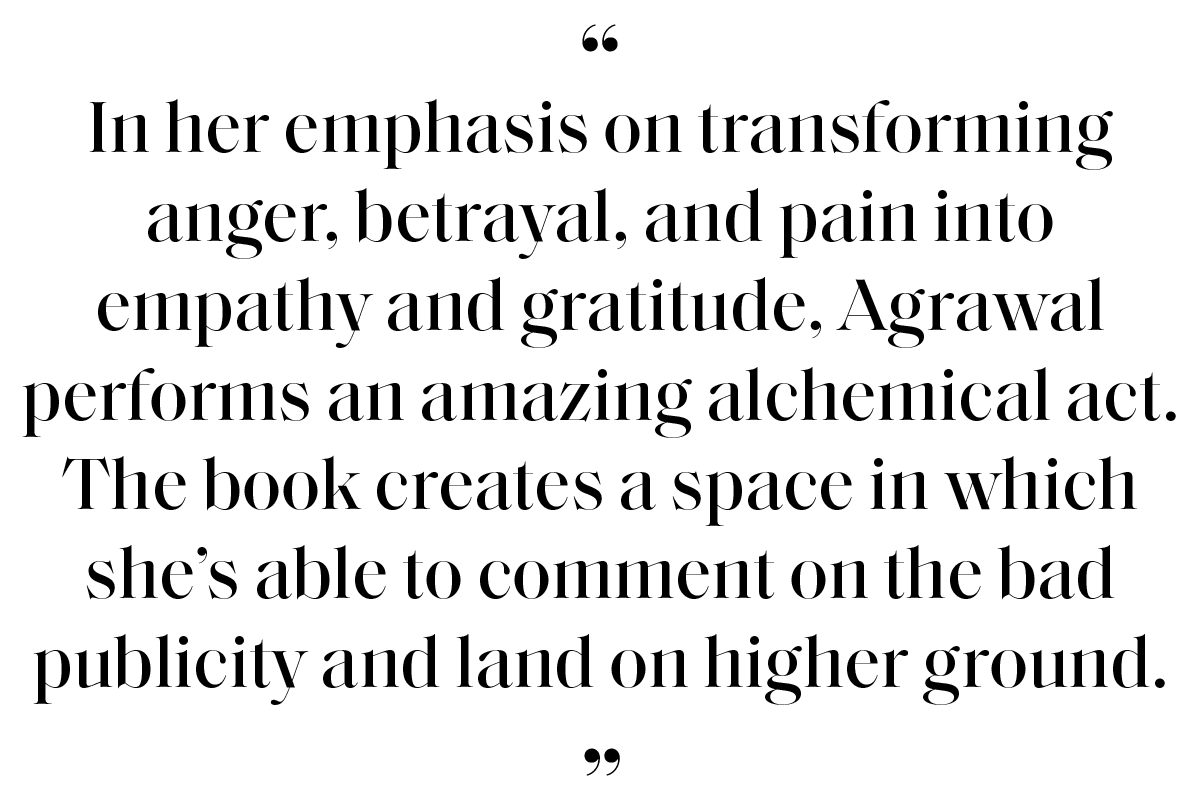Is the World Ready for Miki Agrawal and Her Next Big Idea – Miki Agrawal Discusses Her Bidet Startup, Tushy

In fact, society is wrong about a lot more than just “periods, pee, poop, and pizza,” Agrawal said, drawing laughter from the audience. “This generation and the next is not interested in doing the things that people did 100 years ago. Not interested.” To that point, each chapter of Disrupt-Her names a common way of thinking, then explains where it came from in order to present an alternative. For the notion that “failure is embarrassing,” for instance, readers are instructed to “replace the word ‘failure’ with ‘revelation.’”
Disrupt-Her isn’t billed as a memoir, and much of it focuses on universal topics like the importance of investing one’s money, cultivating a partner’s best qualities, and decluttering one’s home. It is a rebirth, in a sense: Before its launch, Agrawal released a video-poem that begins with her crawling from a bleeding animated vagina. (A hat is conveniently waiting nearby; she puts it on.) While the public may view it as a comeback, the timeline isn’t so linear: Agrawal founded Tushy two years after she launched Thinx, then hired leadership to run it while she focused on the period underwear brand; when she left Thinx, she seamlessly transitioned over to Tushy. If Disrupt-Her answers any question about Agrawal, it’s how she wants to present herself to the world after being accused of abusive behavior in the workplace. Less contrition, more ideology.
In her emphasis on transforming anger, betrayal, and pain into empathy and gratitude, Agrawal performs an amazing alchemical act. The book creates a space in which she’s able to comment on the bad publicity—effectively getting the last word—and land on higher ground. This puts those members of the public who are reckoning with how to regard her, post-Thinx, in the difficult position of arguing against positivity, against personal growth, if they question her at all.
Someone who worked with Agrawal at the time, who only agreed to talk on the condition of anonymity, says that Agrawal knows the value of building her personal brand through this kind of storytelling. Publishing a new book in the aftermath of the Thinx allegations reinforces a narrative in which, the former staffer says, “She’s the hero.”
In February, I visited Agrawal at her home in Williamsburg, Brooklyn, a sleek space filled with colorful woven rugs and air plants. During our interview, her husband, Andrew Horn, popped in and out of the room on his way to and from errands. Their 20-month-old son, Hiro, occasionally toddled into the conversation, cheerfully making a grab at a water glass or one of the cell phones recording the conversation.
Agrawal wrote Disrupt-Her in the two-and-a-half months following Hiro’s birth in July 2017. Laid up in bed healing from her C-section, she wrote between feedings and while the baby was asleep. “I had so many thoughts around the culture of complaining, takedown culture, feminism, patriarchy, fake feminists, people who wear the feminist T-shirts and the vagina necklaces but are really mean girls on the inside,” Agrawal says. These topics appear in the book, in chapters that deal with woman-on-woman hate and gossipy media coverage—the products, Agrawal writes, of scarcity mindsets and a news business that rewards clickbait.
Agrawal says she believes in creating a culture that is progressive and supportive of people being themselves—but that doesn’t mean lowering her standards. “I demand excellence. I do,” Agrawal says. “Shouldn’t you demand it for yourself? And if I’m going to bring it out of you, that’s a good thing. If that sometimes requires tough love, like, ‘Hey, I asked for that three times, come on, you’ve got this.’ Then you go back and tell everyone, ‘She’s yelling at me!’ Like, is that yelling or just being like, ‘Come on, you’re better than this!’?”
